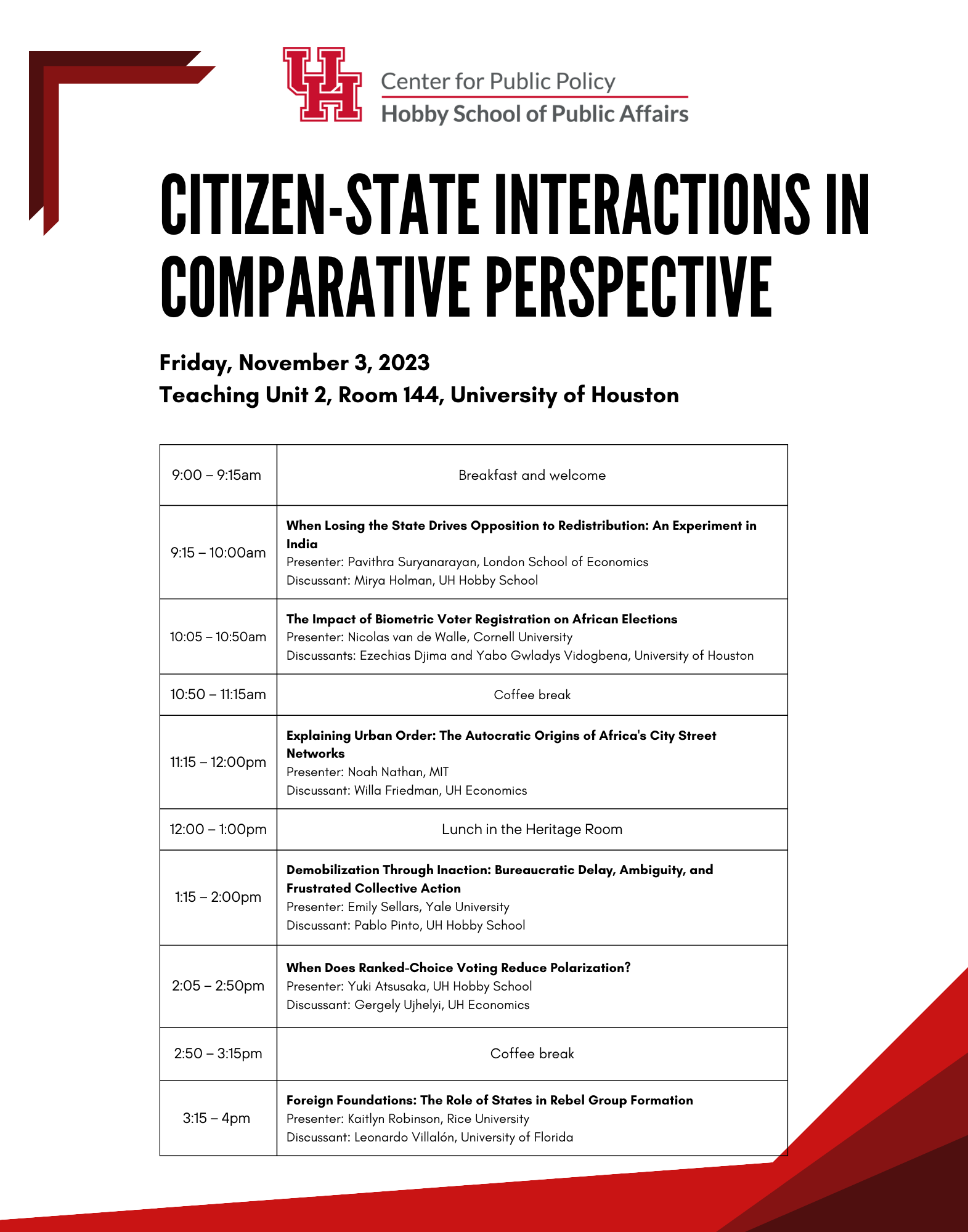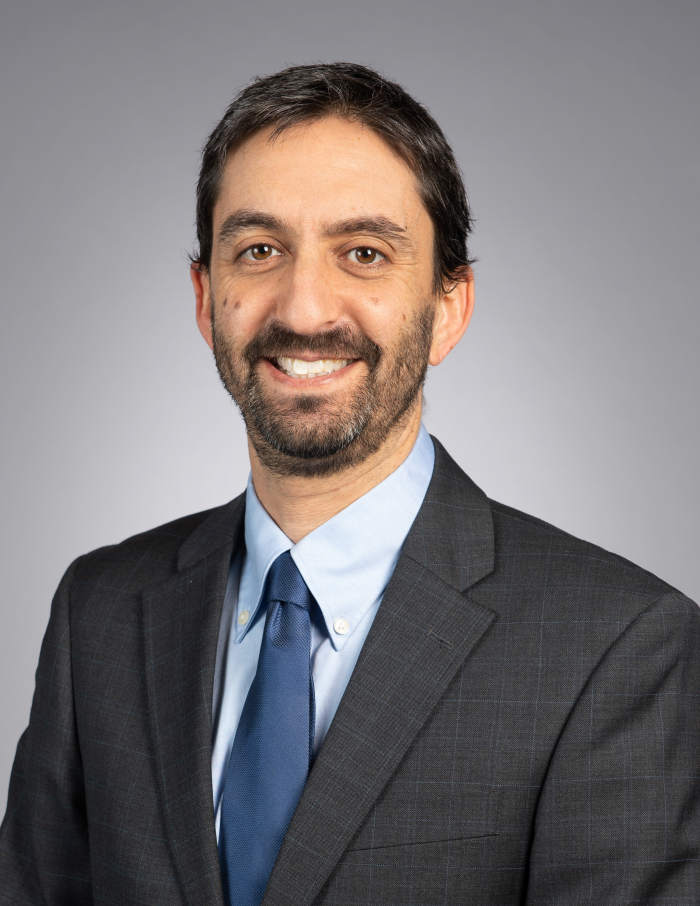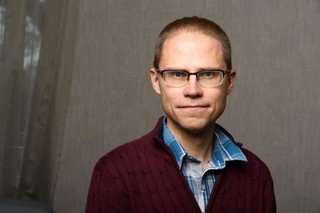2023 Speakers
Hobby School of Public Affairs
Center for Public Policy Mini-conference
Event title: Citizen-State Interactions in Comparative Perspective
Date: Friday, November 3, 2023, 9am – 4pm
Location:Room 144, Teaching Unit 2, University of Houston

Hobby School of Public Affairs
Center for Public Policy Speaker Series
 Oded Gurantz, PhD, Assistant Professor, School of Education, University of Colorado, Boulder
Oded Gurantz, PhD, Assistant Professor, School of Education, University of Colorado, Boulder
Date: Friday, October 20, 2023
Time: 12:30-1:45 pm
Location: Teaching Unit 2, Room 211
Paper title: Family Ties: The Effects of the Price of College on Parent and Student Finances
Abstract: The rising cost of college has led families to increasingly rely on debt to help
finance this investment. Increased debt can have adverse consequences for both parents
and students, who may experience higher default rates, reduced access to credit, or
less ability to purchase a home. Using data on California’s FAFSA applicants we find
that reductions in the price of college via state grant aid produce substantial spillovers,
reducing parents’ educational loan and Home Equity Lines of Credit (HELOCs) balances,
and lowering delinquencies rates for families with poor credit histories. We observe
no effects on students’ credit outcomes. These findings document a new and important
channel in which the price of college can spill over into the broader economy.
About the speaker: Oded Gurantz is an assistant professor in the School of Education at the University
of Colorado, Boulder. His research focuses on gaps in college enrollment and completion
between students from historically underserved groups and their more privileged peers.
He uses quantitative research methods, primarily quasi-experimental and experimental
designs, to examine programs and policies that are both effective and efficient in
ameliorating educational disparities. He received his PhD in Educational Policy from
Stanford University.
Department of Economics and Hobby School of Public Affairs
Political Economy Speaker Series
 John Londregan, Professor of Politics and International Affairs, Princeton University
John Londregan, Professor of Politics and International Affairs, Princeton University
Date: April 25, 4-5:15pm, 2023
Location: S120
Paper title: "The Rhetorical Response to Electoral Defeat at Chile's First Constituent Convention”
(with Jorge Fabriga, Universidad de Desarollo, Chile)
Abstract: We employ the Sparse Factor Analysis approach of Kim (2019) to speeches made and votes cast by members of Chile's Constituent Assembly of 2021-2022. We identify two dimensions of conflict, the first corresponds to the standard left-right rift found in most legislatures, while the second corresponds affect for the convention itself. The delegates on the right divide into two clusters--notably the delegates divide into two clusters. One coalition, RN-Evopoli, takes a very pro-convention stance, the other, UDI, stakes out a starkly anti-convention position. We find systematic differences between party militants and independents affiliated with the same party.
About the speaker: John Londregan is Professor of Politics and International Affairs at Princeton, where he works on political economy and political methodology. He is the author of Legislative Institutions in Chile, and he has published in political science and economics journals including the APSR, IO, World Politics, Political Analysis, the QJE and the Rand Journal of Economics. He is a founding member of the Academic Freedom Alliance and currently serves as President of the Princeton chapter of Phi Beta Kappa. He earned his PhD at Princeton, and he has also taught at UCLA and at Carnegie-Mellon.
Hobby School of Public Affairs
Center for Public Policy Speaker Series
 Johannes Urpelainen, PhD, Prince Sultan bin Abdulaziz Professor of Energy, Resources and Environment School
of Advanced International Studies (SAIS), Johns Hopkins University
Johannes Urpelainen, PhD, Prince Sultan bin Abdulaziz Professor of Energy, Resources and Environment School
of Advanced International Studies (SAIS), Johns Hopkins University
Date: Thursday, April 20, 2023
Time: 4pm-5:15 pm
Location: 102 Science Building
Title: Environmental Justice in India: Incidence of Air Pollution from Coal-Fired Power Plants
Abstract: Air pollution is a vexing problem for emerging countries that strike a delicate balance between environmental protection, health, and energy for growth. We examine these difficulties in a study of disparate levels of exposure to pollution from coal-fired power generation in India, a country with high levels of air pollution and large, marginalized populations. With data on coal plant locations, atmospheric conditions, and census demographics, we estimate exposure to coal plant emissions using models that predict emission transportation. We find that ethnic and poor populations are more likely to be exposed to coal pollution. However, this relationship is sometimes non-linear and follows an inverted u-shape similar to that of an Environmental Kuznets Curve. We theorize that this non-linear relationship is due to the exclusion of marginalized communities from both the negative and positive externalities of industrial development.
About the Speaker: Dr. Johannes Urpelainen is the Prince Sultan bin Abdulaziz Professor of Energy, Resources and Environment at Johns Hopkins SAIS. He is also the Director of the Master of Arts in Sustainable Energy (MASE) degree and the Founding Director of the Initiative for Sustainable Energy Policy (ISEP). He received his PhD in Political Science from the University of Michigan in 2009 and spent the next eight years at Columbia University.
CPP Speaker Series Presents:
 William Roberts Clark, PhD, Charles Puryear Professor of Liberal Arts, Texas A&M University
William Roberts Clark, PhD, Charles Puryear Professor of Liberal Arts, Texas A&M University
Date: Friday, April 7, 2023
Time: 11am-12:30pm
Location: 102 Science Building
Title: The Perils of Privilege: Manufacturing Wages, Educational Attainment, and the Populist Response to Industrial Decline (with Pablo M. Pinto and Keigo Tanabe)
Abstract: We explore an under-examined source of the populist backlash to globalization: discriminatory hiring practices in the manufacturing sector during the middle of the 20th Century. Consistent with the theory of dual labor markets and the efficiency-wage hypothesis, a sizeable manufacturing wage premium existed in the second half of the twentieth century. We conjecture that rationing of jobs in the manufacturing sector was done on the basis of race, gender, and national origin in a way that favored white males. If this was the case, then white males ought to have had a smaller college wage premium than other groups and, therefore, would have had reasons to invest less in their own human capital development than members of other groups. Consequently, white males were relatively ill-equipped to respond when import competition and automation led to a decline in the demand for industrial workers. Consequently, less-educated white males found nationalist, sexist, racist, xenophobic, and protectionist explanations for their having been ``left-behind" compelling. As a result, they were more likely to vote for candidates emphasizing such narratives. We use both individual and aggregate data at the state, county, and commuting-zone levels to examine occupational, educational, attitudinal, and electoral trends to evaluate a number of hypothesis derived from our argument.
About the Speaker: William Clark is Charles Puryear Professor of Liberal Arts at Texas A&M University and research fellow at the Institute for the Study of Religion at Baylor University. His research focus is on comparative and international political economy with an emphasis on the politics of macroeconomic policy in open economy settings. Past research projects have addressed the way monetary institutions (central bank independence and exchange rate regimes) influence the ability of incumbent leaders to use macroeconomic policy for electoral purposes. He has also contributed to the literature on comparative party systems. In addition, Professor Clark has published papers on the statistical testing of conditional hypotheses. Professor Clark is also interested in the political economy of development and the political economy of religion. Work in the former area includes current projects on the political resource curse, and the economic performance of authoritarian governments and the effect of historical protestant missionary flows on economic growth. He is also conducting research that explains why some protestant denominations in the United States are growing while others have been in decline for decades. Professor Clark is in the early stages of a project on the effect of globalization on income inequality.
Professor Clark is the author of Capitalism, Not Globalism and, with Matt and Sona Golder, Principles of Comparative Politics. He has published in a variety of journals including American Political Science Review, International Organization, Comparative Political Studies, Political Analysis, and Economics & Politics.
CPP Speaker Series Presents:
 Scott Tyson, PhD, Associate Professor, Department of Quantitative Theory and Methods, Emory University
Scott Tyson, PhD, Associate Professor, Department of Quantitative Theory and Methods, Emory University
Date and time: April 4 at 4-5:30pm, 2023
Location: Science building Room 120
Title: Deterrence and Economic Sanctions
Abstract: How economic sanctions influence the behavior of potentially aggressive foreign
actors has generated a lively debate. Providing a clear and reliable answer has proven
particularly elusive, especially in light of challenges presented by selection problems
that permeate the empirical study of international relations. Economic sanctions are
often treated in isolation, rather than being one policy tool among the many available
in a country's diplomatic toolkit. We develop a theory to study sanctions and military
threats together, building on canonical models of deterrence, where a defender and
an aggressor interact strategically. We derive conditions identifying when military
threats and sanctions are substitutes and when they are complements. Regarding the latter,
we show that in some cases economic sanctions make deterrence via military threats
possible, when it would otherwise fail completely. Our results also offer a series
of insights about the empirical estimation of the effect of sanctions on challenges
to the status quo by aggressors. Failing to consider the presence of the (possibly unobservable)
deterrent effect of military retaliation threats, might lead sometimes to underestimate
and sometimes to overestimate the effect of sanctions, depending on the strength of
the aggressor.
About the speaker: Scott Tyson is an associate professor at Emory University, department of Quantitative
Theory and Methods. His research focuses on formal political theory, political economy,
conflict, authoritarian politics, experimental design, and theoretical implications
of empirical models. He is an Associate Editor for formal theory at Political Science Research
& Methods, the Journal of the European Political Science Association.
CPP Speaker Series:
 Mariano Tommasi PhD, Professor, Department of Economics, and Director of the Centro de Estudios para
el Desarrollo Humano, Universidad de San Andrés, Argentina.
Mariano Tommasi PhD, Professor, Department of Economics, and Director of the Centro de Estudios para
el Desarrollo Humano, Universidad de San Andrés, Argentina.
Date and time: March 29 at 4-5:30pm, 2023
Location: Science building Room 102
Title: The Political Economy of Redistribution and Efficiency in Latin America (with Carlos Scartascini, IADB)
Abstract: Predominant views on the Political Economy of Latin America tend to emphasize that the elite domination that characterized the history of the region still casts a long shadow, helping to understand very high levels of inequality. The contemporary fiscal version of that assertion goes something like “the rich are powerful and they don´t like taxes, hence we have little taxation and little redistribution.” That is a good approximation to the reality of some Latin American countries; but not of others. There are cases in the region where there are high levels of taxation and non-negligible redistributive efforts. But in some of those cases such redistribution comes hand in hand with macroeconomic imbalances, high inflation, low growth, as well as low-quality public policies. When redistributive efforts are short-sighted, fiscal imbalances lead to inflation and to frequent macroeconomic crises that reduce growth and thwart poverty reduction efforts. Similarly, redistribution with poor state capacity and inefficient public policies also dampens the long-term impact on poverty reduction. The argument of this paper is that there are various possible political configurations (including elite domination and populism among others) and that different political configurations lead to different economic and social outcomes (including the degree of redistribution and others). We postulate that each configuration of social outcomes emerges out of different political economy equilibria. Different countries in the region will be in different political economy equilibria, and hence will have different combinations of political economy syndromes and of socioeconomic outcomes. In this paper we do three things to present that logic. First we characterize the fiscal vector of different Latin American countries. Then we review two branches of political economy that attempt to explain different outcomes, in particular the degree of redistribution and the degree of efficiency, anchored on different syndromes. Finally, we propose a simplified, yet more general, framework that might explain different configurations of countries as outcomes of different political economy equilibria.
About the speaker: Mariano Tommasi (PhD in Economics, University of Chicago, 1991) is Full Professor of Economics at the University of San Andrés, and Director of the Centro de Estudios para el Desarrollo Humano (CEDH), both in Argentina. He is a Fellow of the Econometric Society. He specializes in political economy, institutional analysis, poverty and social policies. He has published several books and articles in journals such as the American Economic Review, American Journal of Political Science, American Political Science Review, Journal of Development Economics, Journal of Economic Inequality, International Economic Review, Economics & Politics, Journal of Policy Reform, and Journal of Public Economic Theory. He was President of LACEA (Latin American and Caribbean Economic Association), Guggenheim Fellow, and Non-Resident Senior Fellow at Brookings Institution. He has been visiting professor in various universities, including Harvard, Yale, Columbia, Tel Aviv, and UCLA. Between 2015 and 2017 he was Coordinator of Strategic Management at the Chief of Staff Office, Presidency of Argentina, where he collaborated in the coordination of the Social Cabinet. During the first half of 2023 he holds the Richard E. Greenleaf Distinguished Chair in Latin American Studies at Tulane University.
CPP Energy Transition and Policy Speaker Series:
 Casey Wichman (Georgia Tech)
Casey Wichman (Georgia Tech)
Date and time: March 22 at 4-5:30pm, 2023
Location: Science building Room 102
Title:“Causes and consequences of inefficient municipal water pricing.”
Abstract: Municipal water utilities often design rate structures to recover costs, encourage conservation, and reduce burdens on low-income customers. Implementing these goals jointly may pull water prices away from economically efficient two-part tariffs. In this paper, I characterize the extent to which utilities deviate from efficient pricing using a decade of annual rates and municipal finance data for more than 700 water and wastewater utilities in the southeastern US. I show that, on average, utilities price water below average and marginal cost, which is exacerbated by increasing-block rate structures where inframarginal prices are discounted more severely. These suppressed volumetric rates are larger in poorer communities, and offset by historical water scarcity, suggesting a direct equity-efficiency-environmental tradeoff. Estimated revenue elasticities imply that utilities can increase revenue and conservation and reduce deadweight loss from overconsumption, by implementing constant marginal cost pricing.
Bio: Casey Wichman is an Assistant Professor in the School of Economics at the Georgia Institute of Technology. He is also a University Fellow at Resources for the Future and serves on the editorial boards of the Journal of Environmental Economics and Management and Resource and Energy Economics. Prior to joining Georgia Tech, he served as the Research Director of the Energy & Environment Lab at the University of Chicago and as a Fellow at Resources for the Future in Washington, DC. He received his Ph.D. in Agricultural and Resource Economics from the University of Maryland in 2015. His graduate work subsequently received the AERE and AAEA outstanding doctoral dissertation awards.
CPP Speaker Series Presents:
 Matthew S. Winters, Professor in the Department of Political Science, University of Illinois
Matthew S. Winters, Professor in the Department of Political Science, University of Illinois
Date and time: February 10, 11-12:15pm, 2023
Location: Science Building RM S102
Title: “Knowledge of Social Rights and Engagement with the State”
Abstract: What explains why some citizens gain access to state-funded social benefits and programs to which they are entitled while others do not? Lower and middle-income democracies today promise more social benefits to more citizens than they have at any time in the past. Beyond simply representing responses to material need, the spread of social programs and the growth in parchment guarantees of social rights reflect an increasingly widespread view among politicians, policymakers, and citizens that social rights are an integral component of democratic citizenship. While the state’s promise of social rights has expanded greatly in many lower and middle-income democracies, a vast literature demonstrates that access to these benefits – and hence the effective exercise of these social rights – remains highly uneven. We argue that citizen knowledge of social rights (KSR) increases individuals’ sense of entitlement to benefits and expectations that they will receive those benefits from the government, making people with KSR more likely to pursue access to government programs. We present results from a survey experiment in Brazil that explores how people's attitudes toward social programs vary with a prime reminding them of their social rights.
Bio: Matthew S. Winters is Professor in the Department of Political Science at the University of Illinois. His research interests include the allocation and effectiveness of foreign aid, the political-economy of governance, and voter attitudes toward corruption. He has conducted research in Bangladesh, Brazil, Indonesia, Malawi, Mali, and Uganda. Winters has published articles in Journal of Politics, Comparative Politics, International Studies Quarterly, World Development, World Politics, and Political Research Quarterly, among other outlets, and has worked as a consultant for USAID, AusAID, and the World Bank’s Independent Evaluations Group. Winters received his Ph.D. in Political Science from Columbia University, was a Postdoctoral Research Fellow at the Niehaus Center for Globalization and Governance at Princeton University, and has held a Council on Foreign Relations / Hitachi International Affairs Fellowship in Japan.
CPP Speaker Series Present:
 Tara Slough
Tara Slough
Date: January 23, 2023
Time: 4:00 - 5:30PM, 2023
Location: Science Building Room 243 (S243)
Title: Bureaucratic Quality and Electoral Accountability
Bio: Tara Slough is an Assistant Professor in the Wilf Family Department of Politics at New York University. She writes on the political economy of institutions and development. Tara's current research focuses on the comparative study of bureaucracies and on research design. Her work appears in journals including the American Journal of Political Science, the Journal of Politics, Science, and the Proceedings of the National Academy of Sciences, among others, and has been supported by grants from the NSF, USAID, EGAP/DFID, J-PAL, the Inter-American Development Bank, and Innovations for Poverty Action. Tara recently earned her PhD from Columbia University.
Abstract: In many theories of electoral accountability, voters learn about an incumbent’s quality by observing public goods outcomes. But empirical findings are mixed, suggesting that increasing the visibility of these outcomes only sometimes improves accountability. I reconcile these apparently conflicting findings by highlighting bureaucrats’ role in the production of public goods. In a simple model of electoral accountability involving a voter, a politician, and a bureaucrat, I show that accountability relations yield distinct empirical implications at different levels of bureaucratic quality. These predictions rationalize some existing conflicting empirical findings. To illustrate how my model makes sense of these otherwise inconsistent results, I develop a new research design—a theoretically structured meta-study—to synthesize existing findings. Evidence from two such meta-studies suggests that a common model of electoral accountability that allows for variation in bureaucratic quality can reconcile conflicting findings on accountability from multiple contexts.